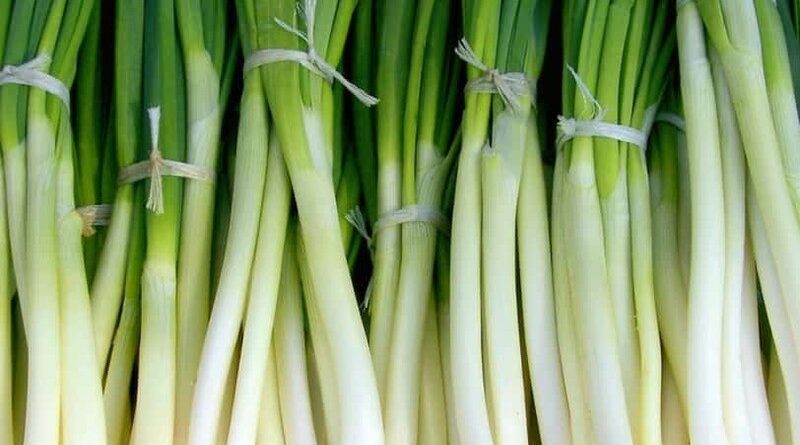Green Onion Nutrition Facts: What You Need to Know
Green onions, sometimes referred to as spring onions or scallions, are a versatile vegetable that is frequently used in a variety of international cuisines. Green onions are a crucial component of a balanced diet due to their many nutritional advantages, which extend beyond their tasty contribution to food. The Green onion nutrition facts, possible health benefits, culinary applications, dietary suggestions, and storage and purchasing considerations for these colorful and nutrient-dense veggies will all be covered in this article.
Green Onion Nutrition Facts
Macronutrient Content:
Green onions are a wonderful complement to a diet that is balanced because they are low in calories and carbs. They also supply fiber, which is necessary for a healthy digestive system.
Minerals and Vitamins:
In addition to minerals like calcium and potassium, green onions are high in vitamins A, C, and K. These nutrients are crucial for maintaining good skin, enhancing immunity, and enhancing general well-being.
Advantages of Green Onions for Health
Properties of Antioxidants:
Antioxidants included in green onions aid in shielding cells from harm brought on by free radicals. These substances may lengthen life and lower the risk of chronic illnesses.
Green Onion Nutrition Facts Promoting Digestive Well-being:
Because green onions are high in fiber. They help to maintain regularity in the digestive system and nourish good gut flora. This can enhance general gut health and help avoid constipation.
Green Onion Nutrition Facts Support for the Immune System:
Green onions are a good source of vitamins and minerals, especially vitamin C. Which helps boost immunity and make it easier for the body to fight off infections and illnesses.
Using Green Onions in Cooking
Enhancer of Flavor in Different Dishes:
Green onions give food a light, subtle onion flavor without being too strong. To improve the flavor of salads, stir-fries, soups, and marinades, they are frequently added.
Green Onion Nutrition Facts Accessorize for Eye Appeal:
Green onions are used as a garnish to give color and freshness to food in addition to imparting flavor. Their vivid green color can enhance the visual appeal and appetizingness of any meal.
How to Include Green Onions in Your Diet?
Green onions are a great and adaptable alternative for anyone wishing to add some extra flavor and nutrition to their dishes. These colorful vegetables may improve the overall flavor and presentation of many dishes. Green onions are a tasty complement to any dinner, whether you incorporate them into your favorite recipes or just slice them up as a garnish.
(Green Onion Nutrition Facts) Recipes and Serving Suggestions
You may use green onions in a lot of different recipes, such as soups, omelets, stir-fries, and salads. Consider using them as a base for homemade sauces, as a topping for baked potatoes, or incorporated into spreads and dips.
Changing the Recipes to Include Green Onions
Do not panic if you run out of green onions! They are easily replaced with other components, including ordinary onions, leeks, or even chives. These substitutions can assist you in achieving a comparable flavor in your recipes, even if the flavor profile may differ slightly. Along the journey, experiment with different substitutes and create new tastes.
Purchasing and Storage Advice for (Green Onion Nutrition Facts)
Use these handy buying and storing guidelines to get the most out of your green onions and make sure they stay fresh for as long as possible.
Choosing Fresh Green Onions:
When choosing green onions, choose those with firm white bulbs and crisp, brilliant green tops. Steer clear of green onions that seem wilted or have spots that are discolored or slimy. If you can, choose locally grown or organic green onions for optimal flavor and quality.
Appropriate Storage Methods:
Remove the roots from your green onions and keep them in the refrigerator in a perforated plastic bag to keep them fresh. As an alternative, you may keep them fresher longer by submerging the roots in a glass of water. Green onions can decay more quickly if they are kept next to fruits that release ethylene. For the best flavor and texture, check your green onions often and use them within a few days.
Conclusion
In summary, green onions are a nutrient-rich addition that can improve the nutritional value of your meals in addition to being a tasty and adaptable cooking element. You can enjoy the goodness of green onions to the fullest by learning about their culinary applications, green onion nutrition facts, and safe handling methods. Including these colorful veggies in your diet will improve the flavor of your food and help you maintain a balanced, health-conscious diet.
